For around 150 years, the shipping company Hamburg Süd A/S has been an established player in international container shipping and, in addition to the classic shipping business, has recently also been able to offer end-to-end logistics solutions and even air freight. Niklas Witte, Sustainability Manager at Hamburg Süd, spoke with us about the company's sustainability goals as well as challenges for the logistics industry in this area.
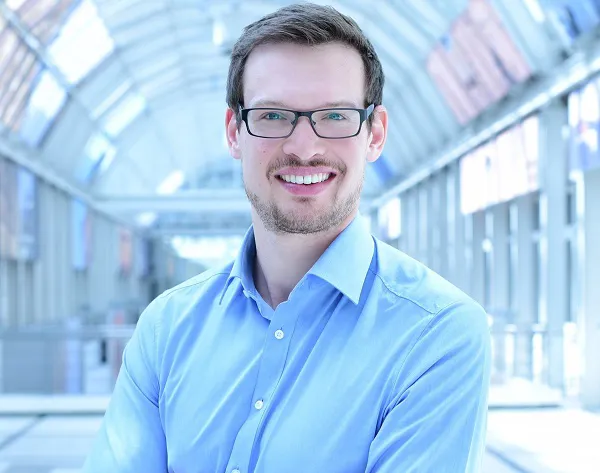
Niklas Witte. Photo: Hamburg Süd
Sea transport remains most sustainable
"Sea transport remains the most sustainable way to deliver goods. However, in order to be able to guarantee the entire end-to-end process for our customers, we are expanding the range of our logistics products to include air freight for our customers. This means that we can cover the entire route from the factory to the end customer. In doing so, we have set ourselves the goal of not only drastically reducing the CO2 emissions of our ships, but also using sustainable fuels to carry one-third of our air freight by 2030. The aviation industry is still in its infancy as far as alternative fuels are concerned. But with so-called Sustainable Aviation Fuel, we are well on our way," says Witte.
Different ambitions, different speeds
But how can such an internationally branched and operating company implement these goals? "Very few countries in the world put obstacles in our way when it comes to sustainability. There are simply different levels of ambition. The EU, for example, wants to be climate neutral by 2050, while India, for example, has moved this goal to 2070. Everyone is on the same path, just at different speeds. A fact that we can also observe in our daily work," Witte notes. Here, he mentions the green-shipping corridor between Shanghai and Los Angeles as a forward-looking example. "Even though China seems to lag a bit behind some targets in the public perception, they are, however, clear pioneers in this area."
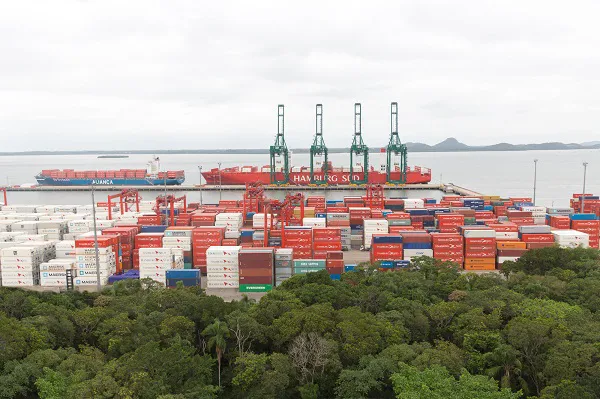
Photo: Hamburg Süd
First ship to run on green methanol in 2023
The shipping industry currently emits about 1.2 gigatons of greenhouse gases per year, which is equivalent to the combined emissions of Germany, France and the United Kingdom. If the industry did nothing, these emissions would increase by about 20% by 2050. Globally, the industry now accounts for about 3% of global greenhouse gas emissions; without the reduction plans, that figure would rise to 8% by 2050.
"If the 1.5-degree target is to be met, international shipping must reduce greenhouse gases by 45% by 2030 and ideally achieve net-zero emissions by 2050, scientists have calculated. But the current difficulty lies precisely in achieving the 2030 target. So the next eight years will be about developing the optimal technology to achieve this, because after that it's just a matter of scaling the technology accordingly," Witte said.
"That's why Maersk - and therefore Hamburg Süd as part of the group - has accelerated its ambitions accordingly. Our original idea was to have the first ship in the water powered by green methanol by 2030. We have accelerated that goal by seven years and can offer that as early as 2023." However, he said, the scientific findings are not yet reflected in the IMO's (short for International Maritime Organization) goals. For example, the IMO does not currently have a net-zero target by 2050, so Hamburg Süd, along with Maersk, wants to lead by example.
"However, we also see that many partners are following suit. After all, we want to be greenhouse gas neutral as early as 2040. Our goal is therefore that by 2030 we reduce the emission intensity in shipping by 50%, and in the area of terminals we want to reduce this by 70%. Our warehouses even up to 90%. For this year, we are already planning to have the first completely climate-neutral warehouse," Witte emphasizes.
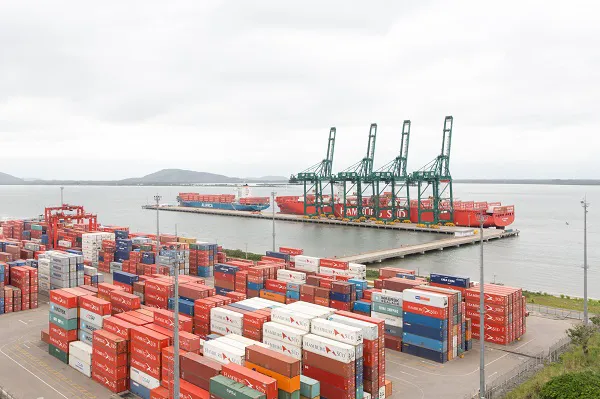
Photo: Hamburg Süd
Biofuel instead of off-setting or LNG
Regarding ocean freight, Hamburg Süd will focus more on the use of biofuel instead of off-setting or LNG (liquefied natural gas). According to Witte, off-setting does not address the problem at source, but merely compensates for emissions. While many would invest in LNG, the company also does not want to consider fossil fuels even as a transitional solution. "Of course, however, there is not only one solution to achieve the goals. We also need a sustainable and diverse fuel mix in the future."
"To turn the corner, one can't act alone, even as a large company. Of course, it is more difficult for smaller shipping companies and logistics providers to achieve these goals. But we, too, naturally rely on collaborations with other companies." For example, Hamburg Süd / Maersk also participated in the Race to Zero campaign. "We need everyone who can contribute to drive these solutions forward. That's why it's also important for the small players in the market to participate, because the more that join in, the more pressure there will be to act."
"We have ordered 13 new methanol ships worth over $2 billion. Of course, that has a signal effect to the outside world." However, he said, simply making shipping less greenhouse gas-intensive is not enough; the entire company must be greenhouse gas-neutral. This is also apparent among Hamburg Süd's customers, more and more of whom are committed to climate neutrality, Witte said.
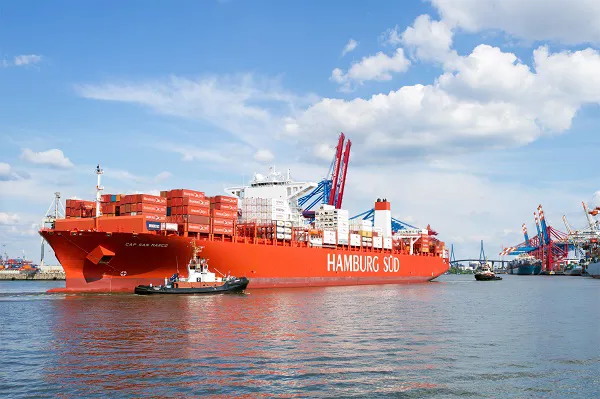
Photo: Hamburg Süd
"In fact, in recent years we have seen significant growth in our customers who are committed to lower greenhouse gases and sustainable logistics. We are very pleased to be able to walk this path together and to work out 100% green logistics chains together,'' Witte concludes.
For more information: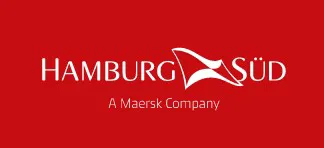 Niklas Witte
Niklas Witte
Hamburg Süd A/S & Co KG
Rödingsmarkt 16
20459 Hamburg
+49 40 37050
+49 40 37052400
[email protected]
hamburgsud.com/de
